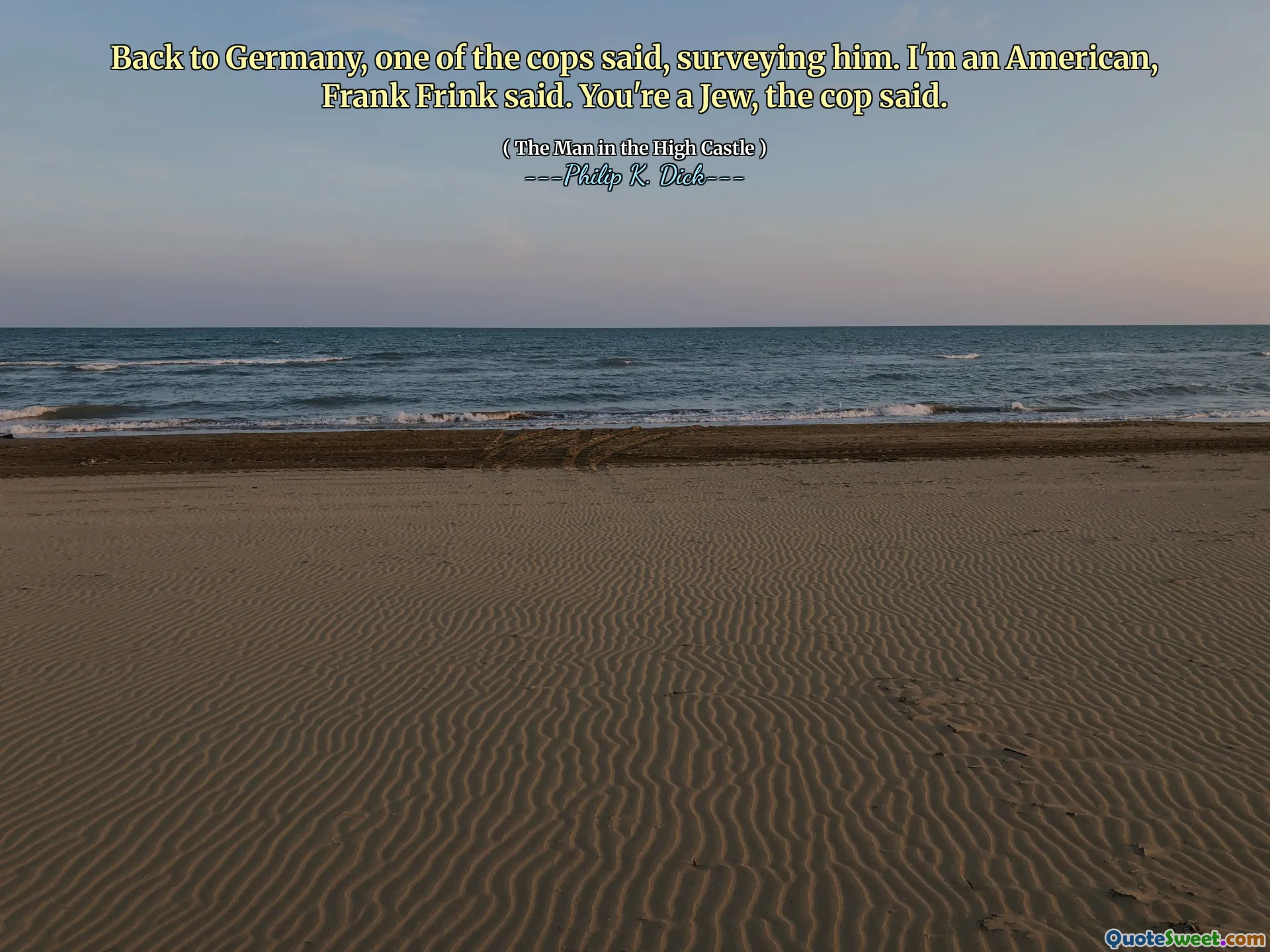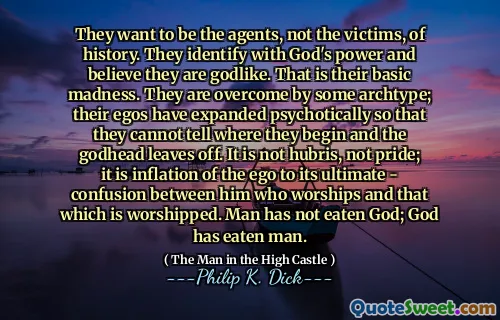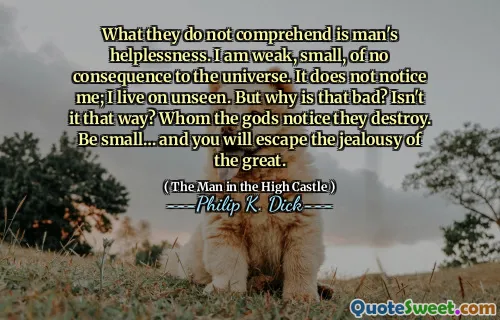
Back to Germany, one of the cops said, surveying him. I'm an American, Frank Frink said. You're a Jew, the cop said.
In "The Man in the High Castle," a tense exchange occurs when Frank Frink, an American, is confronted by a German police officer. The cop's statement highlights a stark reality that transcends nationality; Frink’s identity as a Jew becomes a focal point of prejudice in a world dominated by Nazi ideology. This moment captures the intersection of personal and societal identity within the narrative, illustrating the dangers of being identified solely by one’s ethnicity in a totalitarian regime.
This brief interaction not only emphasizes the harsh realities faced by individuals in a dystopian society, but it also serves to deepen the reader's understanding of the characters' struggles against oppressive forces. Frink's assertion of his American identity juxtaposed with the officer's recognition of his Jewish background reflects the complexity of identity in the face of systemic oppression, showcasing the fragility of personal freedom and the pervasive nature of discrimination in the novel.











